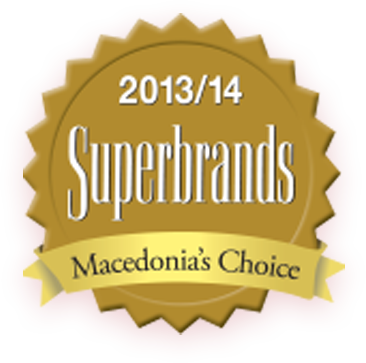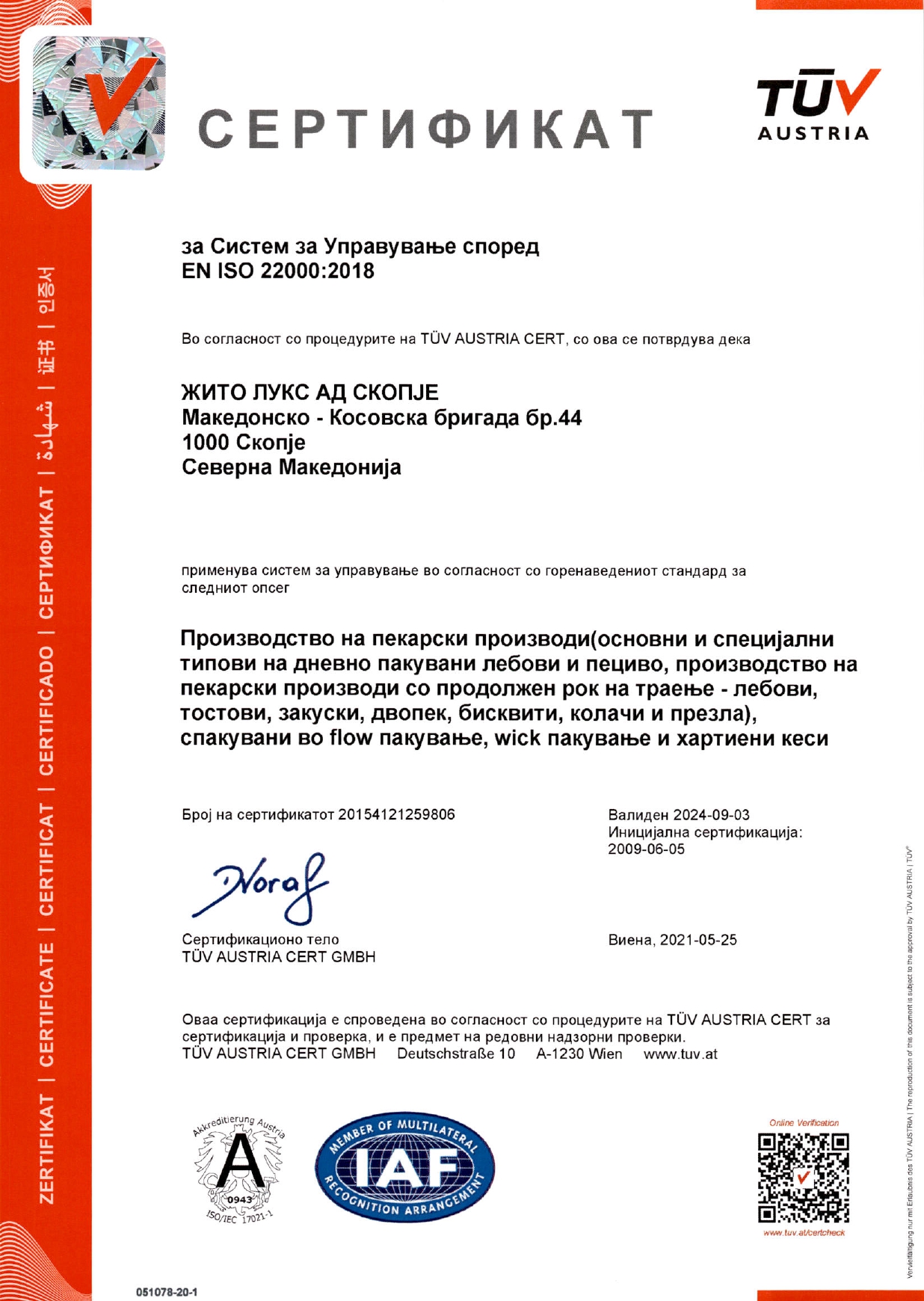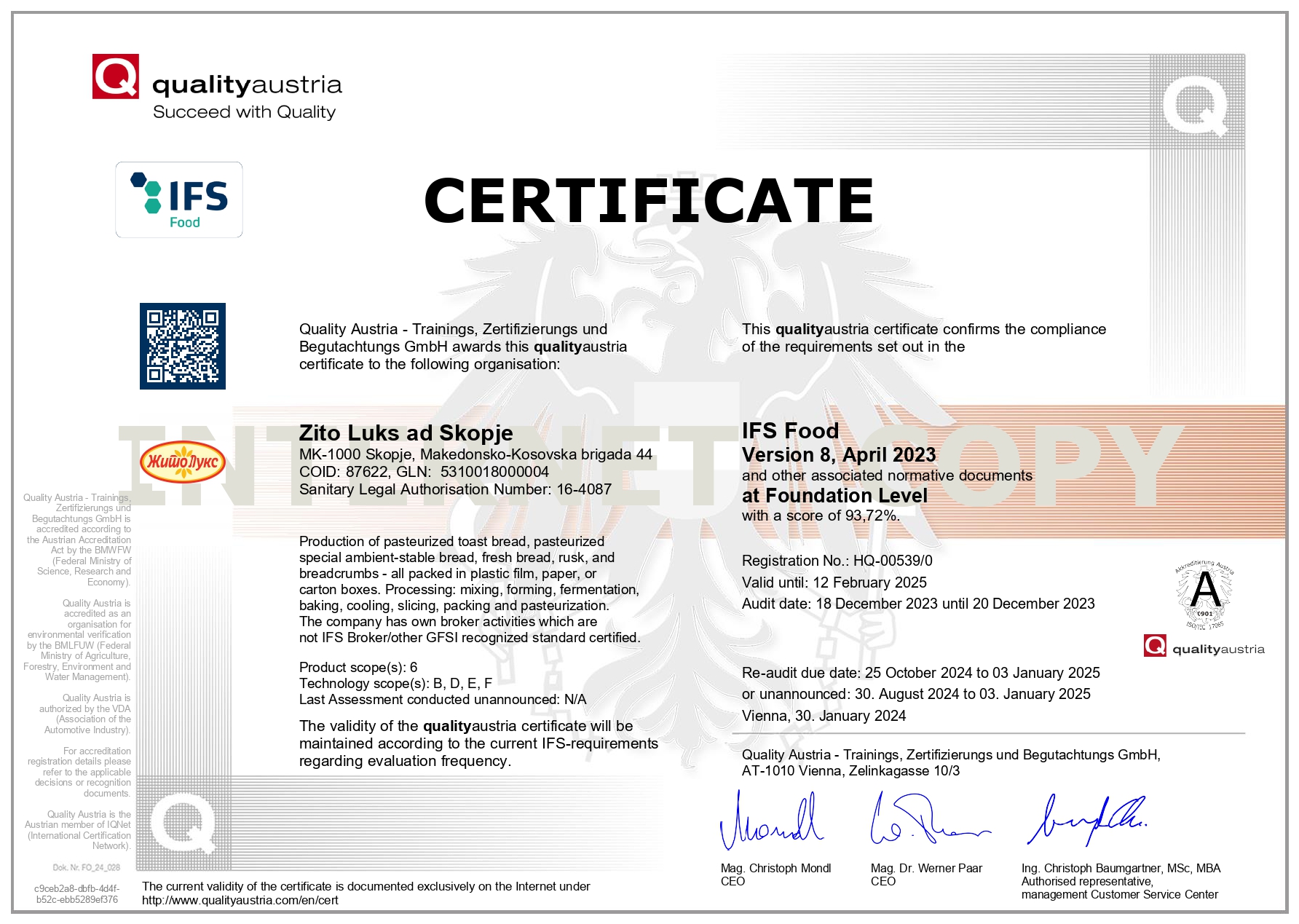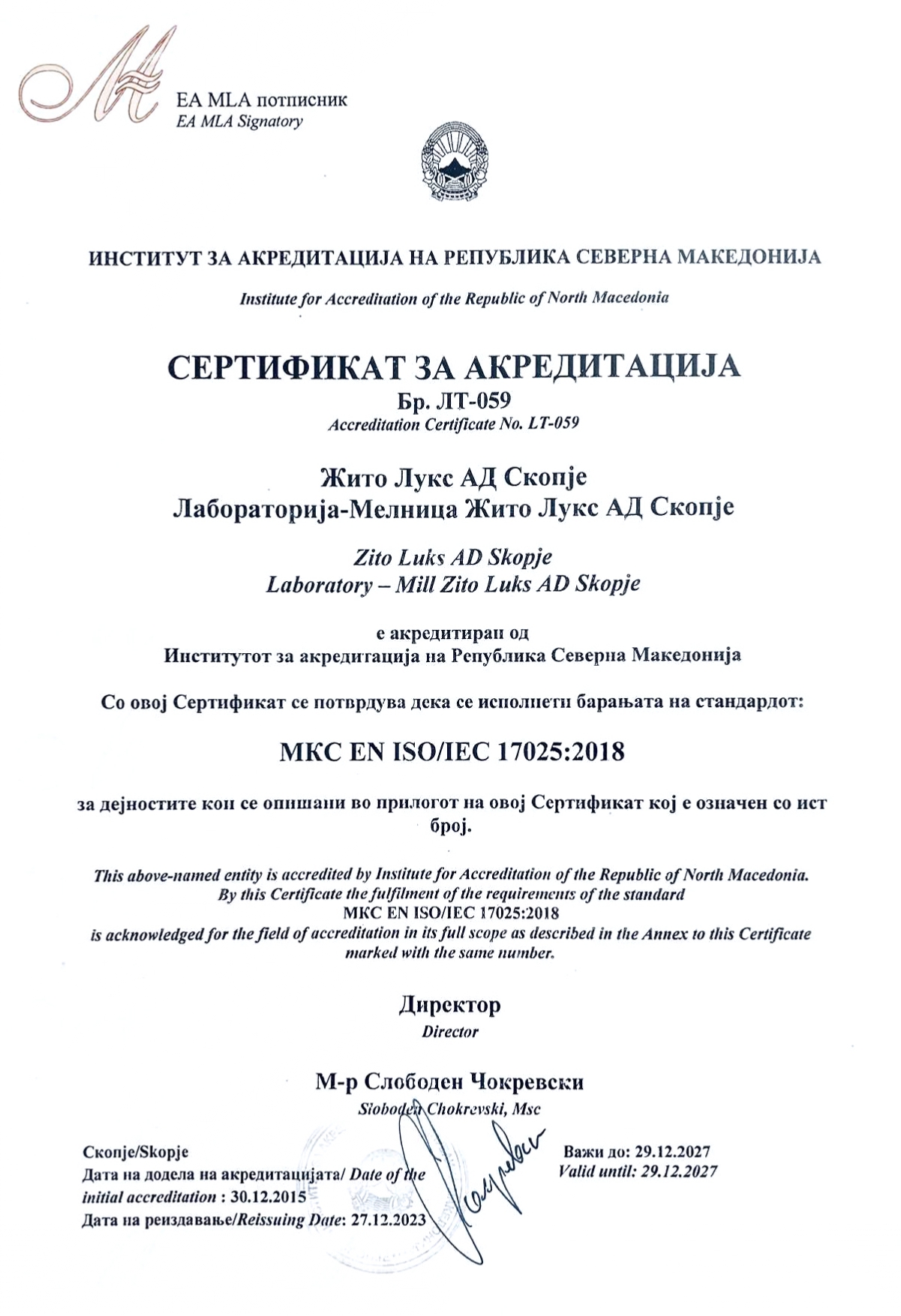Integrated Policy
CERTIFICATES
Zito Luks is a proven and reputable company that has established and consistently applies and improves the ISO 22000 standard, compliant with the requirements for the functioning of an effective food safety management system (FSMS-food safety management system). It integrates the ISO 9001 standard and the use of HACCP techniques-Hazard analysis and critical control point according to Codex Alimentarius, rules of good working and hygiene practice as well as defined prerequisite programs (PRP) for safe food production.
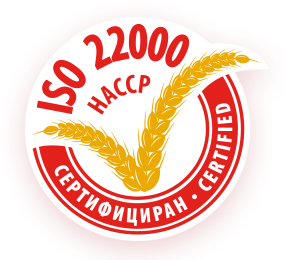
In 2023, our company was successfully certified according to the international IFS (International Featured Standard-Food), widely applied international standard for assessing the compliance of products and processes with regard to food safety and quality. The IFS certificate is awarded by Quality Austria Certification Company, one of the leading audit and certification bodies. The certification covers the entire production of our products: standard breads, sliced breads, special types of breads, toasted bread and breadcrumbs.
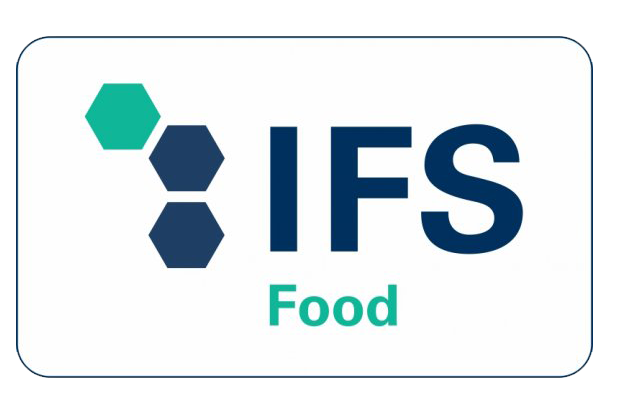
All standards for process management, monitoring the supply and production chain, storage and delivery of products are regularly and timely upgraded following the latest recommendations and changes imposed by the needs for greater product safety.
The standards are universally applied across all links in the food chain, establishing requirements through which all potential risks and hazards to product safety can be discerned, preempted, controlled, and managed. A prerequisite for this is the clearly defined responsibilities and competences of all employees with effective interactive communication through monitoring of the supply and production chain, storage and delivery of products, in order to provide safe and quality
products for our consumers.
The application of the standards creates opportunities for significant competitive advantage, priority approach in international markets, prestigious level of professional credibility, at the same time demonstrating effectiveness and commitment to continuous improvement of overall operations. Managing food in a way that is appropriate and safe to use, in order to meet and exceed customer requirements is imperative for our company.
At the Melnica Zito Luks Laboratory, assessments of wheat and flour quality adhere to the ISO 17025 standard, ensuring rigorous and reliable testing procedures. This international accreditation standard establishes general requirements for competence, impartiality and consistency in the performance of laboratory activities. We achieve the quality of laboratory services with qualified and trained personnel and calibrated test equipment by participating in inter-laboratory comparisons where we provide an assessment of laboratory testing, professionalism and competence. This standard delineates the regulations that the Laboratory must adhere to, substantiating its possession of a quality system, thereby demonstrating competency and proficiency in generating technically sound outcomes. The established quality management system encourages the achievement of a high level of satisfaction among our service users and all other stakeholders, emphasizing its continuous improvement through regular review and refinement.

EUROBUSINESS – SUPER BRANDS
Zito Luks is a company that continuously works on improving its products, delivering impeccably delicious breads to the citizens and a company that has transformed its long tradition into creating a superbrand. Declaring Zito Luks a superbrand in four consecutive years, 2011, 2012, 2013 and 2014, is just another proof of the overall operation of the company. The superbrand recognition brings together values such as product quality, recognition of the company and its products, consistency, communication with consumers and care for their needs, presence, and distribution in the market. All this adds to the value of the Zito Luks breads and flours. This is a motive for further improvement in all segments to justify the continued trust of a large number of satisfied customers. The acknowledgement of Zito Luks as a superbrand company is just an additional proof and reward for the company’s commitment to its work and consumers.
